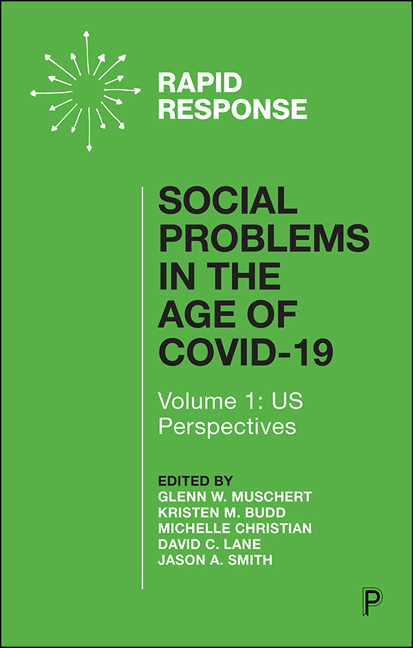5 - The US African-American Population Experienced a COVID-19 Double Disadvantage: Unemployment and Illness
Published online by Cambridge University Press: 23 March 2021
Summary
The Problem
When George Floyd died at the hands of Minneapolis police, he had been laid off from his job at a restaurant closed by COVID-19. Massive job loss is a second-order epidemic that followed the COVID-19 epidemic because worksites closed. And just as with the disease itself, the epidemic of unemployment disproportionately affected African-American workers. The exact counts of job loss and displacement cannot be described as precisely as the hospitalizations and deaths, but clues to their magnitude can be found in US government employment statistics. These statistics must be examined carefully for what they show and for what they conceal. Even with incomplete statistics, however, the high unemployment of African Americans reveals a broader picture of racial inequality and health disparities.
The COVID-19 epidemic ended months of politicians’ jubilation over a booming economy, but in fact the boom had been unequally shared and the bust intensified inequities existing before the pandemic. African Americans had relatively high unemployment levels even during the boom, and the economic dislocation caused by the pandemic made their employment situations worse. Historically, African Americans have suffered the highest unemployment rates in America, followed by Hispanic/Latinx populations (who may be of any race, including Black) and then by majority Whites and Asian Americans. By 20 April 2020, with over 40,683 COVID-19 deaths already recorded and emergency orders in place nearly everywhere in the United States, the Black unemployment rate was 16.7% and the overall rate was 14.7%.
The May 2020 unemployment rates were released on 5 June 2020, and by that date the number of deaths from COVID-19 had reached 95,608. Politicians were quick to trumpet a 1.4% drop in the overall unemployment rate. Less frequently noted was that the Black unemployment rate increased from 16.7% to 16.8%.
This disastrous loss of work for 3.3 million Black workers intensified financial inequalities. Unemployment is a serious issue for any family, but especially for African-American families because they have few income sources besides wages and salaries. They have little financial cushion because their median net worth is only $17,600. (This compares with $171,000 for White families.) Employment loss is also a serious issue for the society, because fringe benefits and payroll taxes constitute a major funding source for what remains of the American safety net.
- Type
- Chapter
- Information
- Social Problems in the Age of COVID-19 Vol 1Volume 1: US Perspectives, pp. 49 - 58Publisher: Bristol University PressPrint publication year: 2020



